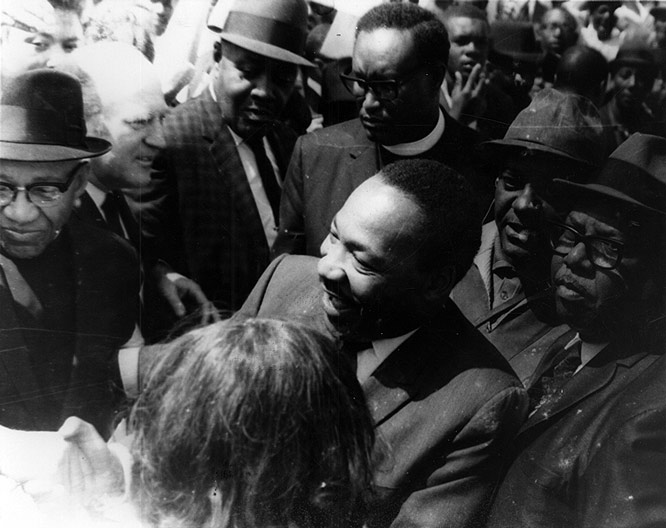Memphis Blues
Memphis Blues
In his unstinting backing of unions, Martin Luther King, Jr. made clear that racism was rooted in a long and stubborn history of class injustice.

During a heavy rainstorm on February 1, 1968, two Memphis garbage collectors, Echol Cole and Robert Walker, were crushed to death in a truck whose compactor started up by accident. This gruesome event galvanized 1,300 of their fellow black sanitation workers to go on strike to demand that the city recognize their union, and guarantee them a safe workplace and a living wage. Martin Luther King, Jr. came to Memphis to speak and march with them. Two months later, he was assassinated there.
King’s support for the workers in that segregated city exemplified his belief that civil rights for black Americans could not be achieved without what he called an Economic Bill of Rights for all working people and the poor. Late in 1967, he had launched the Poor People’s Campaign, which sought to redistribute a portion of the nation’s wealth in order to create a decent life for every American.
King knew, of course, that workers of color faced challenges their white counterparts did not—discrimination in jobs and housing, draconian policing, and unequal schools. But in his unstinting backing of unions, he made clear that racism was rooted in a long and stubborn history of class injustice.
The problems that brought him to Memphis and inspired the Poor People’s Campaign have not been remedied. The night before King was killed, he beseeched the sanitation workers, “We’ve got to give ourselves to this struggle until the end. Nothing would be more tragic than to stop at this point in Memphis. We’ve got to see it through.” Amen.






